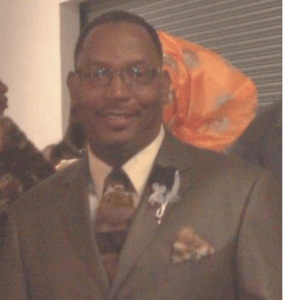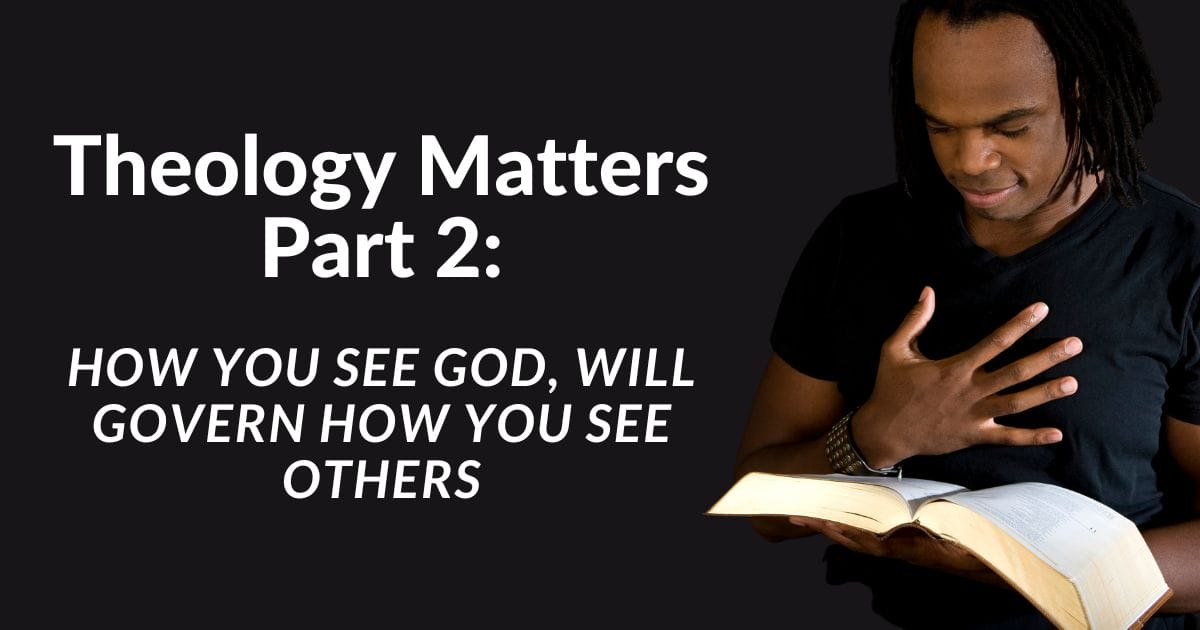By Rev. John E. Jackson
Let us review our conceptual framework as presented by the late Jegna Dr. William Augustus Jones, former pastor of Bethany Baptist Church in New York City. Dr. Jones wrote, “Your theology will determine your anthropology, which will ultimately determine your sociology.” How you see God, (theology) determines how you see yourself, (anthropology) and that determines how you see other people and order your society (sociology).
If God is an old white man seeking to punish people, and if Jesus is a white male with long flowing hair down his back with blue eyes, hands passively clasped in prayer, and if the angels are all white males flying around on wings with bows and arrows, then you will see all human life from this perspective, and you will center whiteness as the norm to ascribe to. This is why theology matters.
This is why there are far too many churches with Black people who are not in “The Black Church” tradition of resistance and equity. There is an example of what I call “bad theology,” used to justify structural inequities in our society by blaming the victims of dangerous policies, rather than addressing inequities that cause people to suffer needlessly.
The experience of Job has been preached and taught from a European ideology to avoid acknowledging some uncomfortable realities of life. We encounter in the opening of the Book of Job a conversation between God and Satan in the heavenly realm.
In that conversation God brags about Job to Satan, who in turn issues a challenge to God that if Job were forced to suffer in life, Job would stop being faithful to God. God accepts Satan’s challenge and allows Job to be subjected to some horrible losses and afflictions (this in itself is a troubling picture of God). I don’t want to offer critical interpretation of the entire story of Job because there is so much that could and should be addressed in this Book that is troubling.
What I want for this installment is to point out the glaring issue of shame and blame in the Book of Job.
In Job the issue of theodicy is addressed. Theodicy asks the question, “If God is good why then do people, good people, suffer?” Job’s experience does not answer the question. But what Job’s experience does do is demolish the theory there is reward for all those who do good and destruction for all those who do bad.
In the theological suppositions of European interpreters “to do good means that a person will receive good things from God in life but to do bad things results in one receiving bad things in life.”
In our society we are taught to blame people and shame them for the bad things that happen, supposing they must have done something wrong to deserve suffering.
How many people grew up with this false and flawed reasoning whose real purpose was to curate the minds of poor people to work hard in low paying jobs demanding great sacrifice, to create profit for overfed corporate overlords and robber barons of society?
The experience of Job demonstrates that many times good people do suffer. Job’s troubling experience also shows that people who believe only bad things happen to bad people, like Job’s friends who constantly demanded that Job confess/admit his wrongdoing so that his punishment could be absolved, are actually hurtful and cruel people to blame Job or anyone for life’s contradictions.
How many people grew up believing this lie? How many people found out that no matter how good you are, terrible things do happen sometimes to people who do their best to be good people? How many people have been scarred seeing mean, hurtful and evil people receiving wealth, privilege, positions and power in this life, while they seem stuck at the bottom of society?
How many people experiencing sickness, health challenges, or grief from the untimely death of loved ones have asked themselves, “what did I do wrong to deserve this pain?” How many people have prayed to God apologizing and appealing to God to forgive them for something that in reality they had no control over?
How many people have been told by sanctimonious church people that if they just believed better and had more faith then good things would happen to them, too, when in reality life is not fair sometimes and that our society is not structured to provide support for those who are not wealthy and experience unmerited suffering?
We would do better to advocate for those who experience the disadvantages of an ineffective health care system that is geared to cater to those with financial wealth, and a political system that rewards the upper class, while ignoring those with meager financial means. We would do better to have more compassion and comfort for those going through life’s consistent inconsistencies.
There are many other issues to address with the Job story that we cannot address in this article but one thing is for sure, and that is, Job’s experience tells us life is not fair. God may be fair, but life is not and our present society’s structure is not geared to help the most vulnerable, but rewards those who are wealthy and who many times are morally bankrupt.
In this life bad things will many times happen to good people, and good things do happen to people who do bad things, and people who blame and shame people for the bad things that happen to them are not caring and compassionate people.
Just ask Job’s friends who were severally chastised by God in the story for blaming and shaming Job for experiencing his unmerited suffering.
Beloved, theology matters!

Rev. Dr. John E. Jackson, Sr. is the Senior Pastor of Trinity United Church of Christ-Gary, 1276 W. 20th Ave. in Gary. “We are not just another church but we are a culturally conscious, Christ-centered church, committed to the community; we are unashamedly Black and unapologetically Christian.” Contact the church by email at [email protected] or by phone at 219-944-0500.






